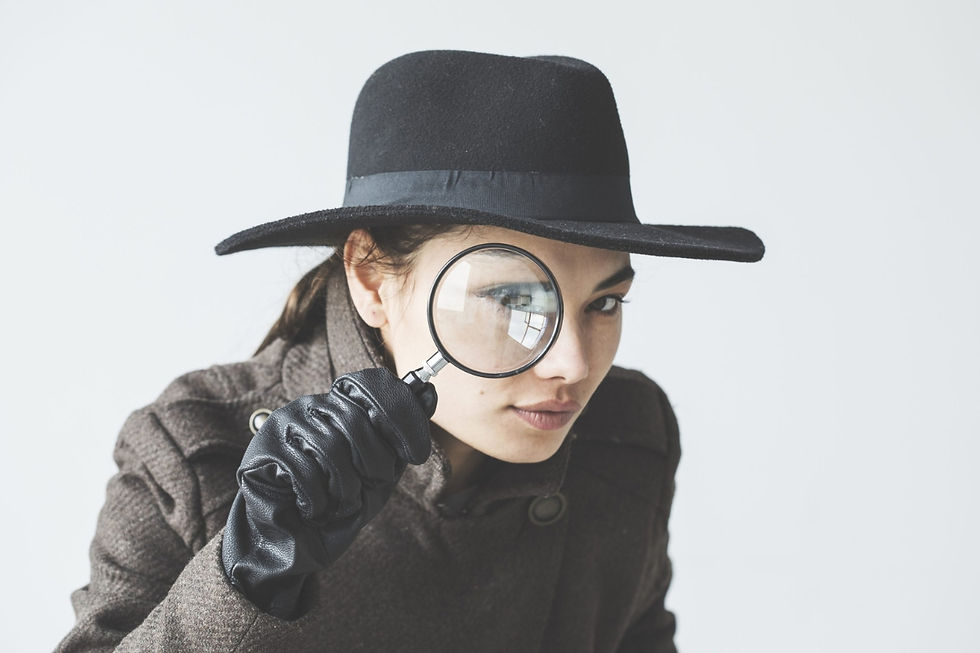Role of a Criminal Defense Investigator Explained
- strategicsalient
- May 29, 2025
- 4 min read
When a person faces criminal charges, most of the spotlight tends to shine on lawyers, judges, and law enforcement. However, working quietly in the background is a crucial figure who can significantly influence the direction of the case — the criminal defense investigator. These professionals dig deep to uncover facts, verify evidence, and support the defense team’s efforts to ensure justice is served and the defendant’s rights are upheld.
A criminal defense investigator works closely with defense attorneys to uncover facts, gather evidence, and find information that might help reduce or dismiss charges. Their job is to make sure that no detail is overlooked and every angle of the case is explored.
What Does a Criminal Defense Investigator Do?
1. Review and Collect Evidence
A criminal defense investigator starts by reviewing all available case materials. This includes police reports, surveillance footage, witness statements, and physical evidence. They search for errors, gaps, or inconsistencies in the prosecution’s case. Their findings often lead to new questions or discoveries that change how the case is understood.
2. Interview Witnesses
One of the crucial steps in any investigation is gathering testimony from people connected to the incident. Whether someone directly witnessed the event or simply has relevant insights, investigators track them down to hear their side of the story. These conversations are essential for assessing the credibility of each account—figuring out who’s being truthful, who might be influenced by bias, and whose recollection doesn’t quite add up. This process often plays a vital role in shaping a strong and credible defense strategy.
3. Research Background Information
A criminal defense investigator doesn't just look at facts—they look at people. By exploring the personal histories of everyone tied to the case—defendants, witnesses, and even law enforcement—they can uncover hidden motives, past behaviors, or contradictions. These human details can often prove just as powerful in court as any piece of physical evidence.
4. Visit and Analyze the Crime Scene
Crime scenes often hold critical details that don’t make it into official reports. Investigators revisit these locations to examine the layout, gather overlooked evidence, and take photos or videos. By walking through the scene, they may uncover clues that support a different version of events than the one provided by the prosecution.
5. Consult With Experts
Some cases require input from experts like forensic analysts, medical professionals, or technical specialists. A criminal defense investigator helps identify and work with these experts to clarify complex parts of the case. Their expert opinions can help a jury better understand key points in the defense argument.
Key Skills of a Criminal Defense Investigator
To be effective, a criminal defense investigator must have a strong mix of technical skills and personal qualities. These include:
Attention to detail – Even the tiniest detail can tip the scales in a case.
Strong communication – They need to ask the right questions and clearly share what they’ve found.
Analytical thinking – Understanding how different pieces of information connect is essential.
Persistence – Investigations can be difficult and time-consuming; giving up isn't an option.
Integrity – Investigators must always follow the law and work ethically.
Why Criminal Defense Investigators Matter
The work of a criminal defense investigator can change the entire direction of a case. They might find evidence that was missed, prove that a witness is unreliable, or uncover mistakes in how the investigation was handled. Their findings can lead to reduced charges, dismissed cases, or even full acquittals.
More importantly, they ensure the process is fair. The legal system is supposed to protect the rights of the accused, and that only works when the defense is fully informed and prepared. Investigators help make that happen by digging deep for the truth.
Challenges They Face
Like many important jobs, criminal defense investigators often work under pressure and face several challenges, such as:
Limited time and resources – Defense teams usually have smaller budgets than prosecutors or law enforcement.
Unwilling witnesses – Some people may not want to talk or cooperate with the investigation.
Legal restrictions – Everything must be done within the law. If not, their findings may not be usable in court.
Even with these obstacles, skilled investigators find legal and ethical ways to uncover the facts and protect their client’s rights.
The Bigger Picture
Behind every fair trial lies a deeper truth-seeking mission—and that’s where criminal defense investigators step in. Their job isn’t just to gather facts; it’s to ensure that no critical detail is overlooked. Without their behind-the-scenes efforts, the risk of convicting an innocent person becomes all too real. After all, justice isn’t just about prosecution—it’s about making sure every accused individual has a genuine chance to be heard and defended.
By offering careful, independent investigations, these professionals help balance the legal process — giving defendants a fighting chance and reminding everyone that justice should be based on truth, not assumptions.
Conclusion
In every criminal case, facts matter. A criminal defense investigator ensures that all facts — not just those presented by the prosecution — are discovered, examined, and used to support the truth. Their work brings fairness, clarity, and balance to the justice system, especially when the outcome can change someone’s life forever.
If you're looking for reliable investigative services to support a criminal defense case, Salient Strategic is here to help. Our team is made up of experienced professionals with backgrounds in military operations, intelligence, and law enforcement. We use tested methods to gather key information, guide defense strategies, and find critical evidence — all within legal and ethical standards. Learn more about how we can support your case by visiting our website.




Comments